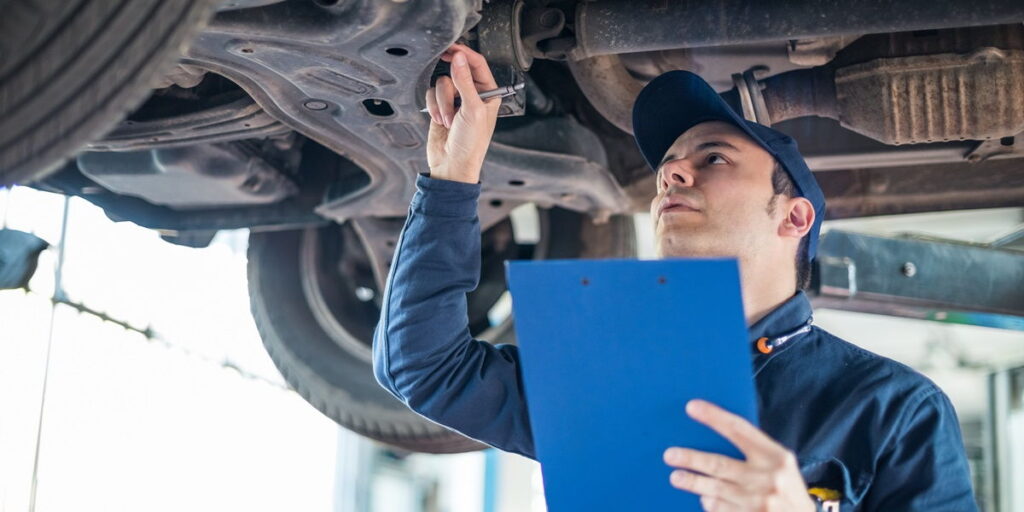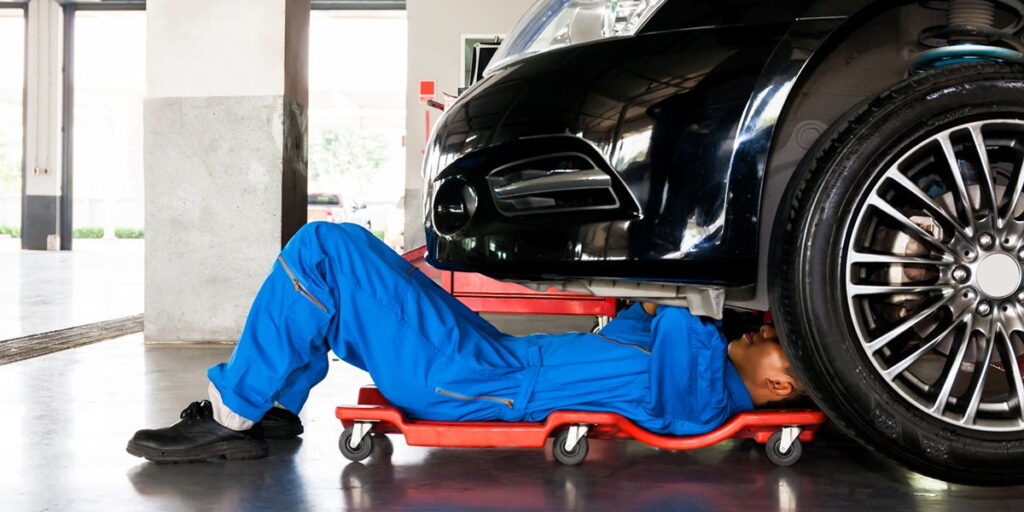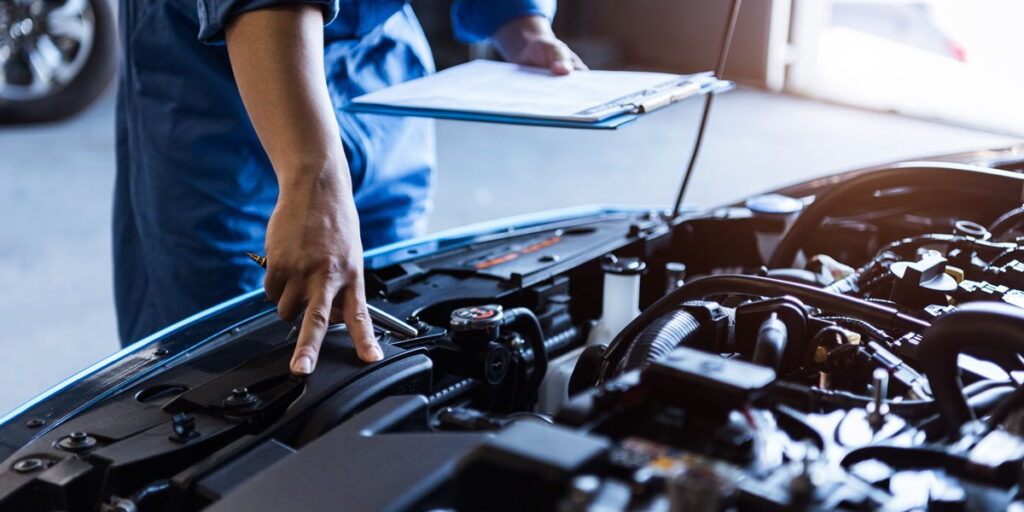If you’re a California resident who’s had it with your lemon car, you may be wondering what your legal options are. Thankfully, the CA Lemon Law is in place to protect consumers like you from being stuck with a defective vehicle and taken advantage of by shady car dealerships and manufacturers. This law outlines the specific steps that you can take to get a refund or replacement vehicle, under certain circumstances. So, what do you need to know about the California lemon law? Keep reading this guide for an overview of the law, what it covers, tips for filing a strong case, and pitfalls to avoid when settling warranty problems with an auto manufacturer using California’s lemon laws.
What is the California Lemon Law?
California Lemon Law Statute
Known collectively as the Song-Beverly Consumer Warranty Act (Civ. Code § 1793.22), California’s lemon laws are among the strongest in the nation. These provide extensive protections to Californian consumers who unknowingly purchased defective goods from duly registered businesses and manufacturers in the state. The Tanner Consumer Protection is the section of the law that specifically covers warranties and consumer protection against defective cars, trucks, SUVs, or other motor vehicles.
How does the Lemon Law work?
Back to Top
Essentially, the California Lemon Law is a state law that requires all auto manufacturers to provide express warranties as to the safety and quality of each new vehicle they sell to California residents. If a new vehicle has a defect which substantially impairs or affects its use, value, or safety, that defect is deemed to be a “nonconformity” — a violation of the manufacturer’s express warranty. The California law then obligates the manufacturer (through their authorized dealer or repair shop) to make a number of repair attempts to fix the vehicle’s issue or defects, and thus make it conform to the manufacturer’s warranty.
If, after a reasonable number of repair attempts (the term “reasonable number” is explained in more detail below), the issue is still not fixed, the new car may qualify as a lemon and the vehicle owner is within their legal rights to file a Lemon Law claim and seek relief before a court of law. Under California lemon laws, such relief can include a refund or buyback, a replacement vehicle, or even damages if the owner has suffered any losses as a result of driving the lemon car.
The California Lemon Law applies to all new vehicles purchased or leased within the state and used primarily for personal, family, or household purposes. In addition, California lemon laws also protect full-time active-duty members of the Armed Forces stationed or residing in California at the time of purchase or lease of their defective vehicles, even if those motor vehicles were purchased or registered outside of the state.
If you believe that your new car falls within the definition of a “lemon” under California lemon laws, you have several options:
- First, try to resolve the warranty issue with the manufacturer or dealership. Many disputes can be resolved through direct negotiation.
- You can submit a claim for arbitration. Most auto manufacturers run arbitration programs which are certified by the California Department of Consumer Affairs.
- Finally, after the manufacturer has been directly notified and is still non-compliant, you can file a lemon law claim in court to try and compel the manufacturer to provide you compensation or replacement for their defective product.
Arbitration as an Option
Back to Top
Arbitration is a legal mechanism provided by the California Lemon Law in which both you, the lemon car owner, and the manufacturer agree to try and settle your warranty dispute out of court. A neutral third party (the arbitrator) will determine if there have been a reasonable number of repair attempts and what relief is appropriate. Many vehicle manufacturers in California offer arbitration programs certified by state agencies like the California Department of Consumer Affairs.
Lemon Law Arbitration can be an attractive option for consumers who wish to resolve their warranty dispute quickly, as arbitrators must make a decision within 40 days, and avoid the hassle of engaging a lemon law attorney’s services or filing a case in court.
In practice, going through arbitration can be a disadvantageous option for the consumer when dealing with a lemon law dispute. This is because the manufacturer who bankrolls the arbitration program may have too much influence in the decision. Also, if you represent yourself during the hearings, you will likely face lawyers or lemon law experts arguing on the manufacturer’s behalf. If you reject the arbitrator’s decision, which is your right under the California Lemon Law, and choose to file a case later, the arbitration decision can serve as evidence against your claim. For these reasons, arbitration may not be the most advisable course of action for consumers to settle warranty disputes.
What are your rights under the CA Lemon Law?
Back to Top
If you’re a California resident who has ever bought or leased a car, you need to know about your consumer rights under the CA Lemon Law. The law is in place to protect consumers like you from being taken advantage of by unscrupulous car dealers and manufacturers. These are some of your rights under the CA Lemon Law:
- Written Warranty. If you purchase or lease a new car from any authorized dealership in California, the law requires the manufacturer to provide you with a written warranty. This is also known as an express warranty.
- Repair or Replacement. If your car has a defect that the manufacturer is unable to repair after a reasonable number of attempts, the law requires them to replace your car with a new one or refund your money.
- Paying for Repairs. The manufacturer is required to pay for all necessary repairs related to any defects covered by the warranty. You do not have to pay for any of these repairs yourself.
- Towing and Rental Car. If your car needs to be towed or you need a rental car while it’s being repaired, the manufacturer is responsible for covering those costs.
- Legal Fees. If you have a lemon, you can take the manufacturer to court to get the defective vehicle replaced or bought back. You don’t have to pay any legal fees out of pocket, and the manufacturer has to pay your attorney’s fees if you win.
The California Lemon Law is your protection against unscrupulous car dealers and manufacturers. By understanding these rights, you can avoid being taken advantage of when purchasing or leasing a new vehicle in the state of California. If you have any questions or concerns about your legal rights under California’s Lemon Law or believe that you may be entitled to compensation for defects covered by an express warranty for your car, please contact an experienced Lemon Law attorney for help.

California Lemon Law Qualifications
What qualifies as a lemon in California?
Lemon laws in California are in place to protect consumers from being unduly burdened with defective consumer products. CA lemon law covers all newly purchased or leased motor vehicles such as cars, trucks, SUVs, and vans used primarily for personal, family, or household purposes.
Does lemon law apply to used cars?
Yes, used cars are covered, as well. Any California consumer who purchased a vehicle from a used car dealership is entitled to the same protection under lemon laws if the issues started and attempts to repair were made by the manufacturer during the vehicle’s original warranty period. When purchasing a used vehicle, try to go for the newer models (last 4 years) and make sure (get confirmation from the seller) that the remaining portion of the vehicle’s original warranty is still valid and transferred to you.
Other Motor Vehicles
Other motor vehicles that do not fall under the above categories may also be covered by CA lemon laws. For example, the chassis, chassis cab, and drivetrain of a motor home that are covered by a consumer warranty are protected. Vehicles that are leased or purchased for business use are also covered under lemon laws provided that the gross vehicle weight is under 10,000 pounds and the business has no more than 5 commercial vehicles registered under its name in California.
What makes a car a lemon in California?
How do I know if my car is a lemon under the law? According to the California Lemon Law, certain standards must be met for a new or used vehicle to be classified as a lemon. There are two things to remember when trying to determine if your car qualifies. First, you are fully protected by the law throughout the duration of the consumer product warranty period. Second, there’s a brief period, called the lemon law presumption period, in which your vehicle is automatically presumed to be a lemon by the court, based on specific factors.
Lemon Law Presumption
Back to Top
In California, the lemon law rebuttable presumption identifies a vehicle to be a lemon if during the first 18 months or 18,000 miles after you purchased or leased the new vehicle, any of the following conditions occur:
- At least two repair attempts have been done on the vehicle for a substantial safety defect that can potentially cause serious bodily injury or death; or
- At least four repair attempts have been done on the new vehicle for the same non-serious safety defect or issue; or
- The vehicle is in the repair shop and can’t be used for a total of more than 30 days (cumulative) for any combination of defects.
California’s lemon law presumption applies if any one of these specific conditions are met during the first 18 months or 18,000 miles after you purchased or leased the new vehicle.
The law does not require that you prove that the vehicle is a lemon; the law presumes it is a lemon. This means that the burden of proof falls on the manufacturer to show that the vehicle is in fact, not a lemon.
Warranty Period Protection
Many Californian car owners make the mistake of thinking that they can no longer file a claim or win their case if their vehicle starts having problems after the first 18 months or 18,000 miles. This is a common misconception among consumers who conduct limited research on California lemon laws and get confused by the concept of lemon law presumption.
However, this is simply not the case. The fact is, you are still covered by the vehicle manufacturer’s warranty and can file a claim under California Lemon Law even if your vehicle’s issues or defects start appearing after the Lemon Law presumption period.
For example, let’s say you purchased or leased a new car and it starts having engine problems 19 months after you drive it off the lot. Even though this is outside of the Lemon Law presumption period, you may still be eligible for a vehicle buyback or replacement because your car is still covered under the manufacturer’s warranty, which generally runs far longer than the presumption period.
If you think you may have a lemon law case, it’s important to speak with an experienced attorney who can help determine if you are eligible for consumer relief. Don’t let the fact that your car’s problems started outside of the Lemon Law presumption period discourage you from seeking legal help – you may still have a case!
Safety Defects Explained
Back to Top
For your lemon law claim to prosper, you and your attorney will need to establish before the court that the vehicle’s defect is a “safety defect” that could potentially cause serious bodily harm to you and to others and that it has not been corrected — even after a number of repair attempts by the manufacturer.
For example, if your rear camera doesn’t work when backing up your vehicle, it will be difficult to see what’s behind the vehicle and there’s a danger that you might hit another vehicle or a pedestrian. The defect needs to be repaired and could be a basis for a lemon law claim, since the part under warranty is not working as intended and might affect your own safety and that of others.
In California, the most common safety-related defects include:
- Transmission issues such as lurching or sudden stopping
- Zero or reduced acceleration
- Windshield wiper issues
- Random illumination of the check engine warning lights
- Steering problems
- Random acceleration
- Defective door locks
- Stalling when trying to accelerate
- Brake light defects
- Defective A/C
- Battery malfunction
In many cases, the opposing lawyer may argue that the warranty explicitly excludes defects or issues that emerged after the consumer made significant modifications or customization to the vehicle. Certain modifications are recommended against by the guidelines in the owner’s manual, such as adding so-called “after-market” parts to the vehicle ( remote starters, incompatible wheel sets, or modified exhaust systems, etc.). If this applies to your situation, your lawyer’s job is to convince the court that the vehicle defects are, in fact, factory defects and not caused by you altering the vehicle specs.

How To File A Lemon Law Claim in California
Back to Top
If you’re a California driver, and you’ve ever had to deal with a lemon car, you know how frustrating and costly it can be. But what many drivers don’t realize is that they may be able to get some relief through the California Lemon Law. This law provides protections for consumers who have purchased or leased a defective vehicle. If your car has been repeatedly repaired for the same persistent problem, you may be able to file a claim under the Lemon Law and get a refund or replacement vehicle. Here’s how the process works:
- Determine if your vehicle qualifies as a “lemon” under California’s Lemon Law. In order to qualify, your vehicle must have a serious defect that affects its use, value or safety, and it must have been subjected to a reasonable number of attempts by the manufacturer or dealer to repair the problem. If your vehicle meets these criteria, especially if the repair issues occurred during the presumption period, you can move on to the next step.
For your own safety, bring your vehicle to the dealership or authorized service center as many times as necessary to have the vehicle issues repaired. To comply with the law’s minimum requirements, you need to allow the manufacturer a reasonable number of repair attempts to fix the vehicle. Fewer repair attempts than the law’s minimum requirements will impact your case negatively.
- Gather evidence. Gather all documentation related to your vehicle’s defects and the repair attempts thus far.This includes the purchase agreement, lease contract, consumer warranty, repair orders, receipts, invoices, correspondence with the manufacturer or dealer, DMV registration, loan payment receipts, and any other relevant documentation.
- Warranty is Required. Without a written manufacturer’s warranty, also called an express warranty, you have no case. This is a standard part of the document packet for each new vehicle purchased or leased in California so you should be able to easily provide a copy of this important document to your attorney.
One important point to remember is that even if the vehicle’s warranty has expired, you are still allowed to file a lemon law claim in California so long as the issues and subsequent reasonable number of repairs occurred during the original warranty period.
- Hire an Attorney. At the earliest stage, it would be beneficial to consult with an experienced California lemon law and consumer rights attorney. They can interpret the law as it applies to your situation, guide you through the documentation and evidence gathering process, and ensure that you do not fall victim to common mistakes that other consumers in similar circumstances make. Part of your attorney-client relationship is full disclosure of the attorney’s compensation expectation. Do they work on a contingency basis or will you be expected to pay their fees out-of-pocket?
Although directly notifying the manufacturer about your claim before filing a case is not required under the law, your lawyer may suggest this option to see if the manufacturer will offer an acceptable settlement outright, rather than pursue a lengthy litigation process. At this stage, in most cases, the manufacturer will either ignore your request for compensation or offer arbitration through an in-house program. As a matter of public policy on consumer products warranties, arbitration is not mandatory in California. Also, as explained above, arbitration may not be the best option for a consumer to take.
- File a case and negotiate a settlement. In a majority of cases, the auto manufacturer will only take your complaint seriously after a formal case has been filed before a court of law. At this stage, after seeing your actual complaint, the manufacturer may offer a settlement in the form of a buyback offer, a replacement vehicle, or cash compensation. Your California lemon law attorney will then attempt to negotiate a settlement that’s acceptable to you. If you and the manufacturer come to an agreement, then the case is withdrawn and settled out of court.
- Go to Trial. If the manufacturer fails to make a settlement offer or presents one that is grossly unacceptable to you, then the case will likely proceed to trial. Your attorney will build up your case and present evidence to secure a favorable verdict. If your vehicle is judged a lemon by the court, the three possible compensation options are: refund or buyback, vehicle replacement, and cash compensation. These settlement scenarios are explained in more detail in a section below.
The process of filing a Lemon Law claim in California may seem daunting, but it’s important to remember that you have rights as a consumer. If you think your vehicle may be a lemon, don’t hesitate to reach out to an experienced lemon law attorney for help and guidance.
Repair Attempts: What’s the Reasonable Number?
Back to Top
California lemon laws allow auto manufacturers a reasonable number of repair attempts to rectify the defective vehicle’s issues. As part of the minimum requirements for filing a claim, you must prove that the manufacturer had the opportunity to make a reasonable number of repair attempts.
There is no ambiguity as to what this “reasonable number” means when the issues occurred and the repair attempts were made during the so-called lemon laws presumption period, which is in the first 18 months or first 18,000 miles in the odometer after the vehicle was leased or purchased by the consumer. These numbers of repair attempts are stated in the California lemon laws as follows:
- At least two repair attempts have been done on the vehicle for a substantial safety defect that can potentially cause serious injury or death; or
- At least four repair attempts have been done on the new vehicle for the same problem; or
- The vehicle is in the repair shop and out of service for a cumulative total of more than 30 days for any combination of defects or repair issues.
If you’re able to prove before the court that the required repair attempts on your vehicle were made at an authorized repair shop during the presumption period, then it’s likely an open-and-shut case as the court will assume your vehicle is a lemon and the burden will be on the manufacturer to disprove this assumption.
If the vehicle defects were detected after the first 18 months or 18,000 miles in the odometer but still under manufacturer warranty, pegging this repair attempt number can be nuanced and subject to interpretation. Fewer repair attempts could result in a denied claim and so, to be on the safe side, lemon law attorneys will sometimes request additional repairs on their clients’ vehicles just to get the repair attempts above the minimum number required by law.
Making sure that your vehicle gets the appropriate number of repair attempts is an important part of protecting your rights as a consumer and complying with the law’s requirements. If you believe that you have a valid claim under California Lemon Laws, it’s important to bring your car in for the required reasonable number of repairs before seeking legal help. This will help ensure that your vehicle is properly classified as a lemon by the court and that you get the relief you deserve.
Do You Need A Lemon Law Attorney To File A Claim?
Back to Top
If you’re having problems with your new or used car, and you think it might be a lemon, the best thing to do is contact an attorney who specializes in lemon law cases. He or she can help you determine whether your car meets the legal definition of a lemon and advise you on how to proceed. It would be a grave mistake not to have an experienced attorney by your side when you file your claim.
Even during arbitration (if that’s an option you choose), having a skilled attorney representing you is essential as you will certainly be facing a lawyer or a lemon law expert hired by the manufacturer to argue their case. There are too many details in the process that need to be addressed and you will be severely handicapping your case if you decide to do it alone. Essential steps to building a strong case such as expert witness selection, evaluation of the vehicle in question, evaluation of your documentary evidence, interpretation of the vehicle’s onboard data recording system, assessment of facts, and guidance in the law’s applications in regards to consumer warranties, lemon law presumption, reasonable number of attempts to repair the vehicle, etc. are best tackled with a professional who knows what they’re doing, helping you in every step of the process.
If you do choose to hire a lawyer, make sure that they’re experienced in handling lemon law cases and are familiar with the process. Ask your lawyer about the attorney-client relationship and how they expect to get paid for their services. Most lawyers work on a contingency basis, which means they only get paid by the manufacturer — not by you — if they win your case. Conversely, the lemon law attorney will not get paid if you lose the case, thus, it’s also in their best interest to make sure that you have an airtight case before they would even consider accepting you as a client. You can find a lemon law lawyer through your state bar association or by doing an online search.

Lemon Law Settlements
What happens if my car is determined to be a lemon under the law?
If you win your CA Lemon Law case, the manufacturer must either replace your vehicle or reimburse you for its cost. This includes your down payment, sales tax, financing costs, and registration fees. If you have leased your car, you are also entitled to a new car or a refund of your lease payments and related fees.
What is Lemon Law Buyback in California?
If the court mandates the manufacturer to buy back your lemon or if you accept a buyback offer from the manufacturer, the refund or buyback amount under California lemon laws will cover the following:
- The initial amount you paid for the vehicle (your down payment)
- All the monthly installment payments you’ve paid
- Supplemental expenses such as processing fees, sales taxes, finance charges, DMV registration fees, contract and warranty fees, etc.
- Incidental expenses or consequential damages you incurred related to the defective consumer product (the lemon) such as car rental expenses and towing fees.
- Outstanding loan payments for the vehicle.
Is the Lemon Law Buyback Amount Subject to Deductions?
Yes. Manufacturers are allowed to reduce the Lemon Law buyback amount to account for your use of the vehicle before the issues started. This is referred to as a mileage offset. The deductible amount is calculated by multiplying the purchase price of the vehicle by the mileage on the vehicle at the first repair attempt and then dividing that amount by 120,000. Here’s a sample calculation of this formula:
- Price of the vehicle paid by the consumer: $30,000
- Mileage on the vehicle when first brought in for repair: 14,000 miles
- Allowable deduction from buyback amount: $3,500
Replacement Vehicle
Another possible outcome in a lemon law litigation is that the court will order the manufacturer to replace the consumer’s vehicle with a brand new unit. In which case, the following stipulations will apply:
- The new vehicle must be substantially identical to your original vehicle;
- The new vehicle should carry the same consumer warranties and service contract if applicable;
- The new vehicle must include the same manufacturer or dealer options you paid for in the original vehicle (rustproofing, undercoating, etc.);
- The manufacturer will pay you any incidental expenses or consequential damages you incurred related to the defective consumer product (the lemon) such as car rental expenses and towing fees.
Cash and Keep Settlement
Many times during trials, it is apparent that the defects on the vehicle do not constitute “substantial impairment” or that the safety concerns were successfully mitigated after a number of repair attempts by the manufacturer. In such instances, the court might order the manufacturer to pay the consumer a set cash settlement and at the same time, allow them keep the vehicle. The cash settlement serves as compensation for the repair problems they experienced and other incidental expenses they might have incurred as a result of driving the defective vehicle, such as towing fees and car rental expenses.

California Lemon Law Time Limit
How long does the lemon law apply in California?
Four years.
The California Lemon Law offers protection for vehicle owners who have experienced repeated problems with their cars during the time frame of the warranty. However, the law may cease to apply in your case if you waited too long to file a claim. There’s actually a four-year time limit for you to file your case.
Lemon Law Statute of Limitations
The California lemon law has a four-year statute of limitations, meaning that there’s a limited window for you to file a lemon law case before a court of law. There is no hard and fast date for the beginning of the statute of limitations. The four-year clock starts ticking on the date when a consumer should have reasonably known that his or her automobile qualifies as a lemon, according to the courts. This is generally interpreted as the date when you first took your new car back to the dealership or authorized shop to have it repaired.
This deadline to file a Lemon Law court case is absolute, regardless of any arbitration attempts or direct negotiations you may have entered into with the manufacturer in the intervening period. Sometimes, however, the exact starting date of the four-year period can be difficult to determine and this is where a CA lemon law expert might be of assistance. An attorney specializing in lemon law cases can help you figure out if your car qualifies for protection under the law and when the statute of limitations began to run.
If you believe your car falls under the California Lemon Law, don’t wait! File a claim as soon as possible to protect your rights.
Lemon Law Time Limit for Arbitration
The deadline to file for arbitration in California is six months after your car warranty expires, according to the California Department of Consumer Affairs. So, if you’re a California resident with a lemon car and have had issues with your vehicle that started within the vehicle’s original warranty period but has not filed for arbitration before the warranty expired, you may still have enough time to do so.
Conclusion
The CA Lemon Law is a powerful tool for consumers who have been saddled with a defective vehicle. In this article, we’ve outlined what the law covers, how to file a claim, and what to expect if your case goes to court. If you think your car might be a lemon, don’t hesitate to reach out to an experienced attorney who can help you navigate the claims process. Remember, you don’t have to go through this alone. Let us know if you have any questions about the process – we’re here to help.
